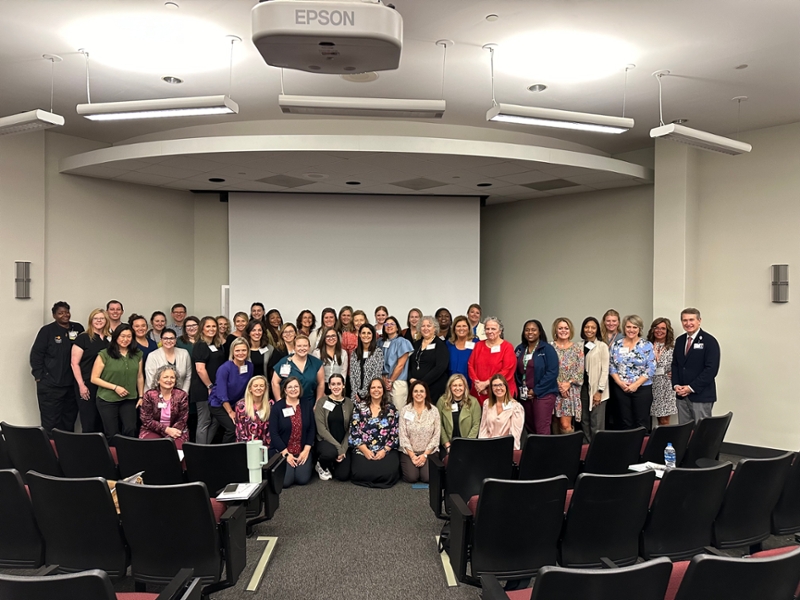Children’s of Mississippi hosts Solutions for Patient Safety conference

Since 2016, Children’s of Mississippi has improved care through Solutions for Patient Safety. On October 26 - 27, the University of Mississippi Medical Center’s pediatric organization hosted a regional conference for SPS, a network of more than 140 children’s hospitals.
“Hosting an SPS conference is a first for Children’s of Mississippi and a testament to our focus on building a culture of quality and safety for our patients and employees,” said Guy Giesecke, DHA, CEO of Children’s of Mississippi. “We are proud to have welcomed our colleagues from among the region’s leading children’s hospitals to UMMC for a productive conference.”
SPS members work together to help each individual hospital make progress on a journey to zero harm. SPS is the only such effort in the nation that is specifically focused on improving pediatric and employee safety.
After working with SPS to improve care, hosting representatives of children’s hospitals throughout the region is exciting, said Kristin Kappler Hardy, director of nursing/children’s hospital services at Children’s of Mississippi.
“We wanted to host a regional meeting several years ago but were in the process of opening the Kathy and Joe Sanderson Tower,” she said. “We’re looking forward to giving attendees tours of the children’s hospital to showcase our quality, expansive services and state of the art facility.”
Solutions for Patient Safety’s member hospitals are on a journey to zero harm, a goal that dovetails with UMMC’s Chasing Zero initiative. SPS is the only such effort in the nation that is specifically focused on improving pediatric and employee safety.
Through SPS modules that target areas such as ambulatory safety, employee safety, central line-associated blood stream infection (CLABSI) and unplanned extubations, member hospitals learn from each other and share best practices. On 5C, a medical-surgical unit of Children’s of Mississippi, as many as seven years have passed since their last CLABSI.
“We’ve achieved so much through SPS,” Hardy said. “In addition to receiving best practices that drive performance in quality and culture, we’ve made so many connections. Now if we have a question, we can text an SPS colleague, and they reach out to us, too. We all work together to identify and implement best practices to provide children with the best care.”
During the conference, Children’s of Mississippi was joined by representatives from 13 hospitals including Prisma Heath Children’s Hospital-Midlands and Upstate in South Carolina, Children’s of Alabama in Birmingham, Children’s Hospital New Orleans, Arkansas Children’s Hospital in Little Rock and Arkansas Children’s Hospital Northwest in Springdale, Our Lady of the Lake Children’s Hospital in Baton Rouge, Louisiana, Children’s and Women’s Hospital of the University of South Alabama Health System in Mobile, Alabama, Norton Children’s Hospital in Louisville, Kentucky, Kentucky Children’s Hospital at University of Kentucky Healthcare, Medical University of South Carolina Shawn Jenkins Children’s
Hospital in Charleston, and Ochsner Hospital for Children in New Orleans. SPS leaders from their Ohio headquarters also attended.
Topics of conference sessions included reviews of safety data, employee and staff safety, safety disparities, building a culture of safety and ambulatory safety, and prevention of unplanned extubations, pressure injuries, and central line associated blood stream infections, with a closing goal of determining the next steps in implementation.
SPS gatherings result in better care for children, attendees said.
“SPS regional conferences are special,” said Christine Dougherty, patient safety and quality manager at Children’s of New Orleans. “We have a shared perspective, and we have similar resources, so we learn from each other. When we face similar situations, we can see how our colleagues at other hospitals are dealing with it.”


